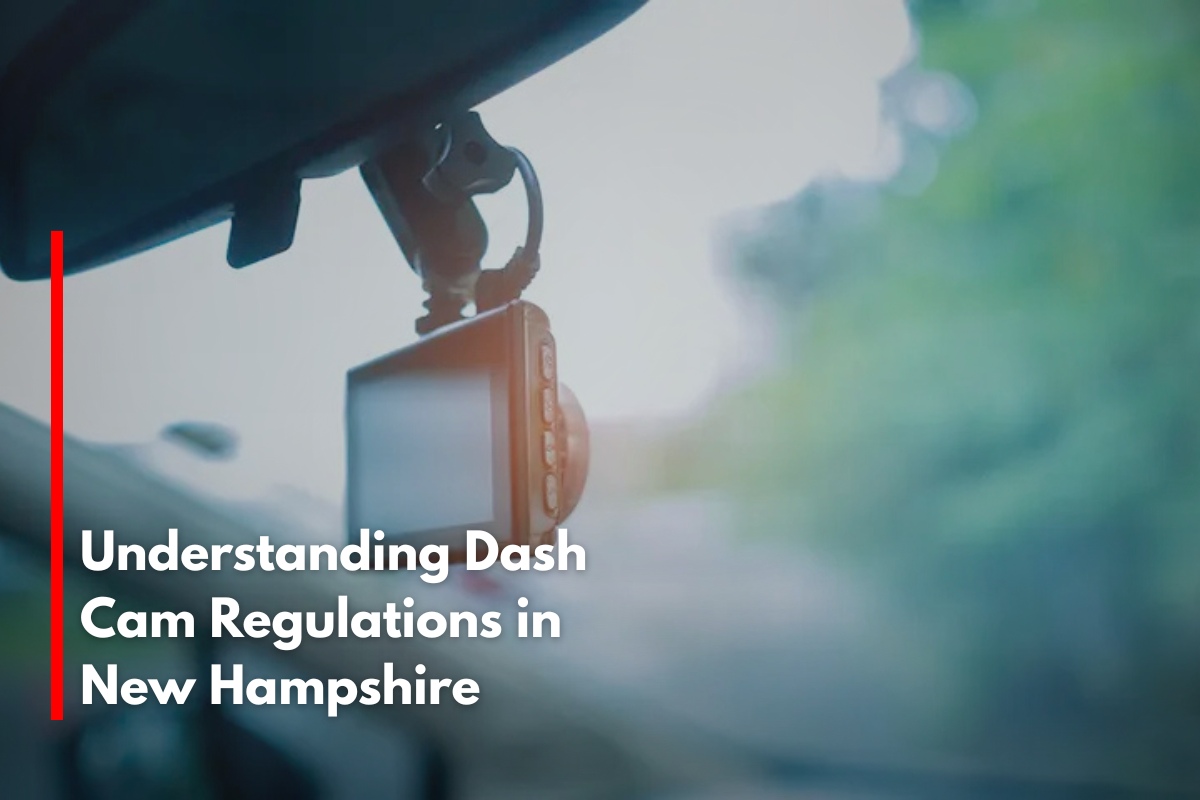Dash cams have become increasingly popular among drivers for recording road incidents, protecting legal rights, and enhancing overall vehicle safety.
However, laws about dash cam usage vary widely by state. New Hampshire has specific regulations concerning where dash cams can be mounted, audio recording consent, and the use of footage in legal situations. Here’s what you need to know about dash cam regulations in New Hampshire in 2025.
Mounting Restrictions: No Windshield Installation
New Hampshire law explicitly prohibits mounting dash cams on the front windshield if the device obstructs the driver’s clear view. According to RSA 265:95 III(b), no person shall drive a vehicle with any nontransparent material, including dash cams, on or adjacent to the front windshield that blocks the driver’s clear vision of the road or intersections.
Instead, dash cams must be mounted on the dashboard within the driver’s line of sight but without impeding visibility. Rear view and interior cameras are allowed as long as they don’t obstruct windows or the driver’s view.
Audio Recording and Consent Laws
New Hampshire is an all-party consent state for audio recording—meaning all individuals being recorded must agree to it. If your dash cam records sound, you must inform all passengers and obtain their consent before recording. This can be done verbally or through posted notices in the vehicle.
Failure to obtain this consent could lead to legal consequences such as privacy violation claims. Many drivers use stickers or explicit verbal warnings to ensure everyone is aware that recording is taking place.
Use of Dash Cam Footage in Legal Proceedings
Dash cam video footage is generally admissible in New Hampshire courts, provided it is clear, authentic, and unaltered. Judges rely on dash cam videos as evidence in traffic accident disputes, rebellious driving cases, and insurance claims.
However, footage must be stored safely and not tampered with. Deleting or editing videos to misrepresent an event can result in legal penalties. Including a timestamp or GPS data in the footage can strengthen its validity in court.
Privacy and Surveillance Considerations
While dash cams primarily record the driver’s perspective, New Hampshire law protects citizens from unlawful surveillance. Dash cams should not be used to illegally record private conversations outside the vehicle or in places where people have a reasonable expectation of privacy.
New Hampshire also prohibits state-sponsored highway surveillance unless specifically authorized by law, emphasizing the importance of lawful use of recording devices.
Why These Regulations Matter
These laws promote road safety by ensuring the driver’s visibility remains uncompromised. They also balance the benefits of video evidence with privacy rights, preventing misuse of audio or video recording inside vehicles.
Compliance with mounting rules prevents distractions or impaired views that could cause accidents. Consent requirements respect passenger privacy while allowing drivers to protect themselves with dash cam technology.
Safe and Legal Use of Dash Cams in New Hampshire
Dash cams are legal and valuable tools in New Hampshire but must be used carefully to meet state regulations. Key points for drivers include:
Mounting dash cams on the dashboard, not the windshield.
Ensuring the camera does not block any window or view for the driver.
Obtaining all-party consent if audio recording is involved.
Preserving clear and authentic footage for legal use.
Observing these rules helps protect yourself legally while ensuring your driving remains safe and unobstructed. By understanding and following New Hampshire’s dash cam laws, drivers can enjoy the benefits of this technology responsibly and confidently.











